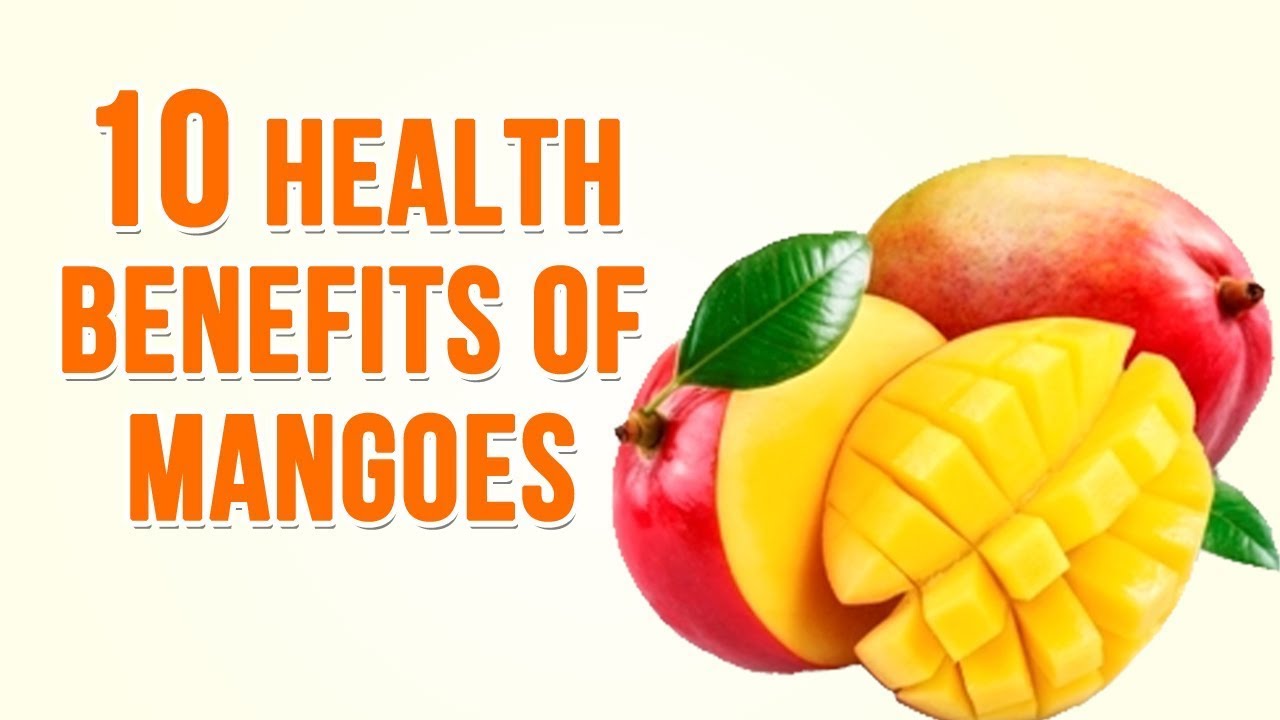High in Vitamins and Minerals
Mangoes are rich in vitamins A and C, potassium, and fiber.
Mangoes are an excellent source of essential nutrients that offer numerous health benefits to the human body.
One of the key reasons why mangoes are considered a superfood is their richness in vitamins A and C, which play a crucial role in maintaining healthy vision, immune function, and overall well-being.
Vitamin A helps to protect the eyes against damage from blue light, reducing the risk of age-related macular degeneration and cataracts. It also promotes healthy skin, hair, and mucous membranes.
Mangoes are an excellent source of vitamin C, a powerful antioxidant that protects cells from oxidative stress and inflammation. Vitamin C is essential for immune function, wound healing, and the production of collagen and other proteins.
Another key nutrient present in mangoes is potassium, a vital electrolyte that regulates fluid balance and blood pressure. A diet rich in potassium can help to lower the risk of cardiovascular disease, stroke, and kidney stones.
Mangoes are also an excellent source of dietary fiber, which promotes healthy digestion, satiety, and weight management. A high-fiber diet has been associated with a reduced risk of heart disease, type 2 diabetes, and certain types of cancer.
In addition to their nutrient profile, mangoes have several other health benefits that make them an excellent addition to a balanced diet.
Mangoes contain various phytochemicals and polyphenols that have anti-inflammatory and antioxidant properties. These compounds can help to protect against chronic diseases such as cancer, neurodegenerative disorders, and cardiovascular disease.
The antioxidants present in mangoes have been shown to have anti-aging effects, helping to reduce the appearance of fine lines and wrinkles and promote healthy skin aging.
Mangoes also support eye health, reducing the risk of age-related macular degeneration and cataracts. The fruit is rich in lutein and zeaxanthin, two carotenoids that act as powerful antioxidants in the eyes.
Finally, mangoes have been traditionally used to treat various health conditions, including digestive issues, diarrhea, and constipation. The fruit’s high fiber content and soothing properties make it an effective natural remedy for these conditions.
In conclusion, mangoes are a nutrient-dense food that offers numerous health benefits due to their richness in vitamins A and C, potassium, and fiber, as well as their antioxidant and anti-inflammatory properties.
The vitamin C content helps to protect the body against free radicals and supports immune function.
Antioxidant Properties
Mangoes contain a variety of antioxidants that help to protect cells from damage.
Mangoes are one of the most nutritious fruits, providing an impressive range of essential vitamins, minerals, and antioxidants. These beneficial compounds play a vital role in maintaining good health, preventing chronic diseases, and even promoting overall well-being.
The high antioxidant content in mangoes helps to protect cells from damage caused by free radicals, which can lead to oxidative stress and inflammation. This is especially important for the heart, as excessive oxidative stress has been linked to an increased risk of cardiovascular disease and atherosclerosis.
Mangoes are rich in vitamin C, a powerful antioxidant that plays a key role in immune function and collagen production. Vitamin C also helps to protect against cell damage caused by environmental toxins and UV radiation from the sun.
Another essential nutrient found in mangoes is vitamin A, which is vital for maintaining healthy vision, immune function, and skin health. Vitamin A deficiency has been linked to conditions such as night blindness, dry skin, and impaired wound healing.
Mangoes are also an excellent source of potassium, a mineral that helps regulate blood pressure, promotes bone health, and supports muscle function. Potassium deficiency can lead to symptoms such as fatigue, weakness, and muscle cramps.
The antioxidants in mangoes have been shown to possess anti-inflammatory properties, which may help alleviate symptoms associated with conditions like arthritis, gout, and other inflammatory diseases. Regular consumption of mangoes may also reduce the risk of certain cancers, including colon, breast, and prostate cancer.
Furthermore, the fiber content in mangoes can promote digestive health by supporting regular bowel movements, preventing constipation, and regulating blood sugar levels. This makes mangoes an excellent snack for individuals with diabetes or those trying to manage their weight.
In addition to its numerous health benefits, mangoes are also rich in other essential nutrients like copper, iron, magnesium, and manganese. These minerals play important roles in energy production, immune function, bone health, and enzyme regulation.
The unique combination of vitamins, minerals, and antioxidants found in mangoes makes it an incredibly nutritious fruit that can be enjoyed throughout the year. Whether eaten fresh, dried, or used as a jam or chutney, mangoes are a delicious addition to any meal or snack.
This can contribute to reduced inflammation and a lower risk of chronic diseases, such as heart disease and cancer.
The consumption of mangoes has been associated with several health benefits, including the reduction of inflammation and a lower risk of chronic diseases such as heart disease and cancer. One of the primary reasons for this is the high content of antioxidants in mangoes.
Mangoes are an excellent source of vitamins A and C, potassium, fiber, and various polyphenolic compounds, which have potent antioxidant properties. These antioxidants help to neutralize free radicals in the body, which can cause oxidative stress and lead to chronic diseases.
One of the key ways that mangoes contribute to reduced inflammation is through their content of quercetin, a flavonoid with potent anti-inflammatory properties. Quercetin has been shown to inhibit the production of pro-inflammatory enzymes and cytokines, which are involved in the development of chronic diseases such as arthritis, diabetes, and cardiovascular disease.
The antioxidants present in mangoes also have anti-cancer properties, with some studies suggesting that they may help to reduce the risk of colon, breast, and prostate cancers. This is due to their ability to inhibit the growth of cancer cells and induce apoptosis (cell death) in cancerous cells.
Furthermore, the fiber content in mangoes can help to support healthy digestion and prevent constipation, which is a common symptom of chronic diseases such as heart disease and cancer. A diet rich in fiber has also been shown to lower cholesterol levels and reduce blood pressure, both of which are risk factors for heart disease.
In addition to their antioxidant and anti-inflammatory properties, mangoes have also been shown to have anti-diabetic effects. The polyphenolic compounds present in mangoes may help to regulate glucose metabolism and improve insulin sensitivity, reducing the risk of developing type 2 diabetes.
The health benefits of mangoes make them an excellent addition to a healthy diet. They can be enjoyed fresh, dried, or as a juice, and are a versatile ingredient for a variety of recipes, from salads to smoothies. With their high content of antioxidants, vitamins, and minerals, mangoes are an excellent way to support overall health and reduce the risk of chronic diseases.
Cardiovascular Health
The potassium content in mangoes helps to regulate blood pressure and support cardiovascular health.
Mangoes are one of the richest sources of potassium, an essential mineral that plays a crucial role in maintaining overall health. The potassium content in mangoes is particularly beneficial for regulating blood pressure and supporting cardiovascular health.
Potassium helps to lower blood pressure by counteracting the effects of sodium, which can cause blood vessels to constrict. When you consume foods rich in potassium, such as mangoes, it helps to dilate blood vessels and reduce blood pressure. This is especially important for people with hypertension, as high blood pressure can increase the risk of heart disease, stroke, and kidney disease.
The high potassium content in mangoes also helps to support cardiovascular health by reducing the formation of blood clots. When you eat foods rich in potassium, it helps to keep your blood vessels healthy and flexible, which reduces the risk of heart attack and stroke.
Mangoes are also a good source of fiber, vitamins A and C, and other essential nutrients that can help to support cardiovascular health. The fiber content in mangoes helps to lower cholesterol levels by binding to bile acids and removing them from the body, which reduces the amount of cholesterol produced in the liver.
Additionally, the antioxidants present in mangoes, such as flavonoids and phenolic acids, help to protect against oxidative stress and inflammation. Oxidative stress and inflammation can damage blood vessels and increase the risk of cardiovascular disease.
In summary, the potassium content in mangoes is a key contributor to their ability to regulate blood pressure and support cardiovascular health. The high levels of potassium, fiber, vitamins, and antioxidants in mangoes make them an excellent addition to a healthy diet for those looking to maintain good heart health.
The fiber content also helps to reduce the risk of heart disease by promoting healthy cholesterol levels.
The fiber content present in mangoes plays a significant role in reducing the risk of heart disease, and this is primarily due to its ability to promote healthy cholesterol levels.
Mangoes are an excellent source of dietary fibers, which can help in the absorption of nutrients from food, facilitating proper digestion, and promoting regular bowel movements.
The soluble fiber content in mangoes helps to reduce the absorption of dietary cholesterol into the bloodstream, thereby reducing the total cholesterol levels in the body.
By regulating cholesterol production, mango fiber intake also aids in lowering the risk of developing heart disease, a condition characterized by reduced blood flow due to clogged arteries.
Furthermore, regular consumption of mangoes has been found to help maintain healthy levels of low-density lipoprotein (LDL) or ‘bad’ cholesterol and increase high-density lipoprotein (HDL) or ‘good’ cholesterol in the body.
This balance is crucial in maintaining a healthy cardiovascular system and reducing the risk of heart attacks, strokes, and other related disorders.
In addition to its fiber content, mangoes are also rich in antioxidants, vitamins, minerals, and phenolic compounds that contribute to their cardioprotective properties.
These bioactive molecules help in neutralizing free radicals, which can cause oxidative stress and inflammation in the cardiovascular system, ultimately reducing the risk of heart disease.
Overall, incorporating mangoes into a balanced diet can have a profound impact on maintaining healthy cholesterol levels and reducing the risk of heart disease due to its rich fiber content and other beneficial compounds.
Digestive Health
Mangoes are high in dietary fiber, which can help to promote regular bowel movements and prevent constipation.
Mangoes are an excellent source of dietary fiber, containing both soluble and insoluble fiber.
The high content of dietary fiber in mangoes makes them an effective food for promoting regular bowel movements and preventing constipation.
Dietary fiber helps to add bulk to stool, making it easier to pass through the digestive system, which can help to prevent constipation and associated symptoms such as bloating, cramping, and straining during bowel movements.
The soluble fiber in mangoes, particularly pectin, forms a gel-like substance in the stomach that slows down digestion and helps to absorb water, making it easier for food to move through the digestive system.
Additionally, mangoes contain other beneficial nutrients such as vitamins A and C, potassium, and magnesium, which can help to support overall health and well-being.
The fiber content in mangoes also plays a role in regulating blood sugar levels by slowing down the absorption of glucose from food into the bloodstream.
Mangoes have been shown to be effective in managing conditions such as type 2 diabetes, where dietary fiber can help to improve insulin sensitivity and reduce blood sugar levels.
The high antioxidant content in mangoes also helps to protect against oxidative stress and inflammation in the body, which can contribute to chronic diseases such as heart disease, cancer, and cognitive decline.
The fiber content also supports healthy gut bacteria, contributing to a strong immune system.
The consumption of mangoes has been associated with several health benefits, including its potential to support the growth and maintenance of healthy gut bacteria.
Gut bacteria play a crucial role in maintaining a strong immune system, and research suggests that a diet rich in fiber can promote their growth and development.
The high fiber content in mangoes includes both soluble and insoluble fibers, which work together to promote the health of the gut microbiome.
Insoluble fibers, found in the skin and pit of the mango, help to add bulk to stool, preventing constipation and promoting regular bowel movements.
Soluble fibers, on the other hand, are digested by gut bacteria into short-chain fatty acids, which provide energy to cells lining the colon and promote a healthy balance between beneficial and pathogenic microorganisms.
Studies have shown that diets rich in soluble fiber can increase the production of anti-inflammatory cytokines, molecules that help to regulate inflammation in the body.
This reduction in inflammation is associated with improved immune function, reduced risk of chronic diseases such as cardiovascular disease and type 2 diabetes, and even enhanced mental health by reducing symptoms of anxiety and depression.
Furthermore, the prebiotic properties of mango fiber can enhance the absorption of essential nutrients from the gut, allowing for more efficient utilization of vitamins and minerals by the body.
This highlights the importance of incorporating foods rich in dietary fiber into our diets to promote a healthy balance of gut bacteria and maintain immune function.
The health benefits associated with the consumption of mangoes are undeniable, making it an excellent addition to any diet looking to support overall well-being and reduce the risk of chronic diseases.
- Lip Filler London – Lip Augmentation & Natural Lip Enhancement - December 16, 2025
- Tennessee’s THC Beverage Market - June 5, 2025
- Top THC Infused Seltzers in Delaware - June 5, 2025





